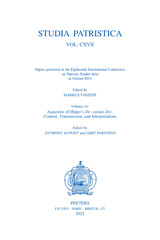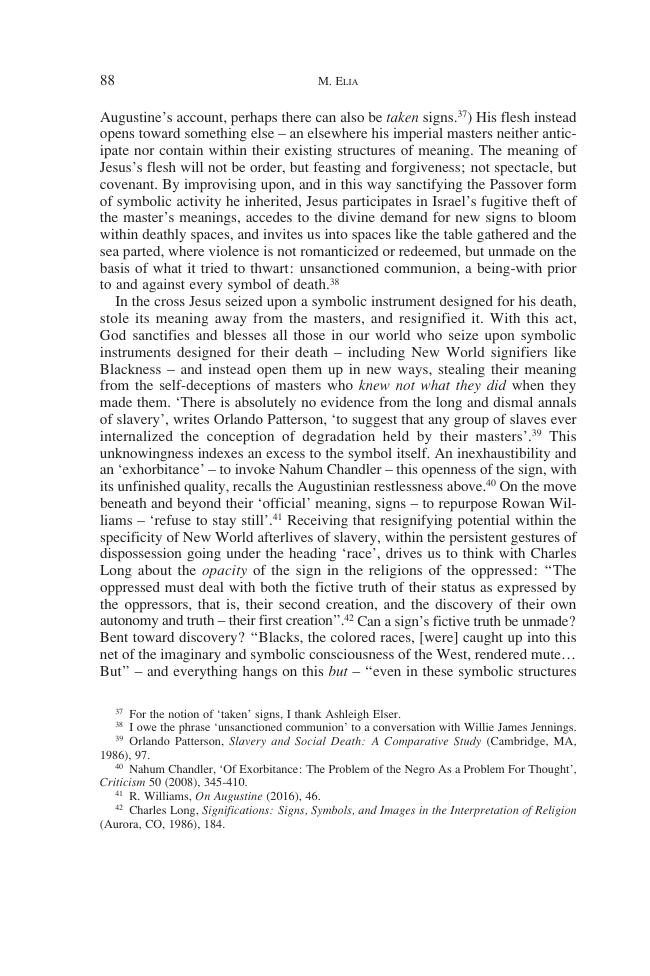Papers presented at the Eighteenth International Conference on Patristic Studies held in Oxford 2019
204 p.
The successive sets of Studia Patristica contain papers delivered at the International Conferences on Patristic Studies, which meet for a week once every four years in Oxford. These papers range over the whole field, both East and West, from the second century to a section on the Nachleben of the Fathers. The majority are short papers dealing with some small and manageable point; they raise and sometimes resolve questions about the authenticity of documents, dates of events, and such like, and some unveil new texts. The longer papers put such matters into context and indicate wider trends. The whole reflects the state of Patristic scholarship and demonstrates the vigour and popularity of the subject. The sack of the "Eternal City" of Rome by the Visigoths led by the infamous Alaric on August 24, 410 caused great dismay throughout the Roman Empire. In addition to being a political and socio-economic disaster, it was mainly a symbolic shock - the 9/11 of Late Antiquity. Many wondered whether this tragic event h
eralded the end of an era. At the request of his dear friend Marcellinus, Augustine of Hippo (354-430) wrote his De civitate Dei, in which he offered an apologetic response to the external criticism that the Christian faith was responsible for the decline of the Roman Empire. At the same time, he answered the internal Christian concern that the fall of Rome also threatened the future of the Church. Augustine's De civitate Dei is a comprehensive synthesis of theology, historiography, political philosophy, and so much more, which has been copied, read, consulted, quoted, interpreted and discussed by an extremely diverse audience: monks and politicians, historians and philologists, theologians and philosophers, Christians and non-Christians - past and present. This work is still food for thought, not only for the study of Late Antiquity in general and Augustine in particular, but also for the wider debates regarding religion, philosophy, history and politics. This volume offers a sample of the broad and diverse.
interest in this grandiose book that has undeniably influenced the culture and thinking of the West. [Publisher's text].
Special access authorizations may apply; please contact us for further information.
Anmerkungen zum Inhalt
- Volume 14: Augustine of Hippo's De ciuitate Dei: Content, Transmission, and Interpretations
-
Informationen
ISBN: 9789042944664
THEMENBEREICHE



